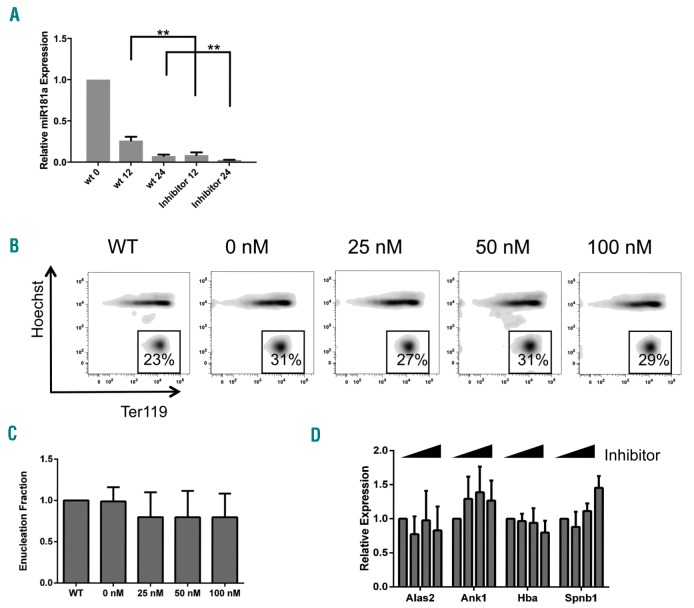Figure 2.
Further downregulation of miR-181a, normally developmentally down-regulated during erythropoiesis, does not disrupt normal erythroid differentiation. Cultured murine fetal liver erythroid progenitors were transiently transfected with increasing concentrations of a synthetic miR-181a inhibitor oligonucleotide (RNAiMAX, Life Technologies), lowering endogenous miR-181a levels by up to one-tenth normal levels. (A) Expression of mature miR-181a in wild-type versus inhibitor-transfected cells at time 0 hours (h), 12 h, 24 h post transfection during in vitro erythropoiesis, showing up to one-tenth fold decreased miR-181a, using sample transfected with 50 nM inhibitor (optimal concentration as directed by the manufacturer). (B) Differentiation as measured by flow cytometry for Ter119 and Hoechst (DNA) at 48 h post transfection shows no observed change in Ter119 induction or loss of DNA staining (reticulocytes) even after increasing doses of inhibitor (representative plot). (C) Quantification of reticulocyte populations from (B) (Ter119-positive cells without nuclear DNA staining) also shows no dose response in enucleation. (D) Expression of key erythroid transcripts as measured by qRT-PCR shows no alteration. All results shown are the mean±Standard Error (n=3 per group; **P<0.01). Changes in enucleation (C) or relative expression (D) are not statistically significant.

